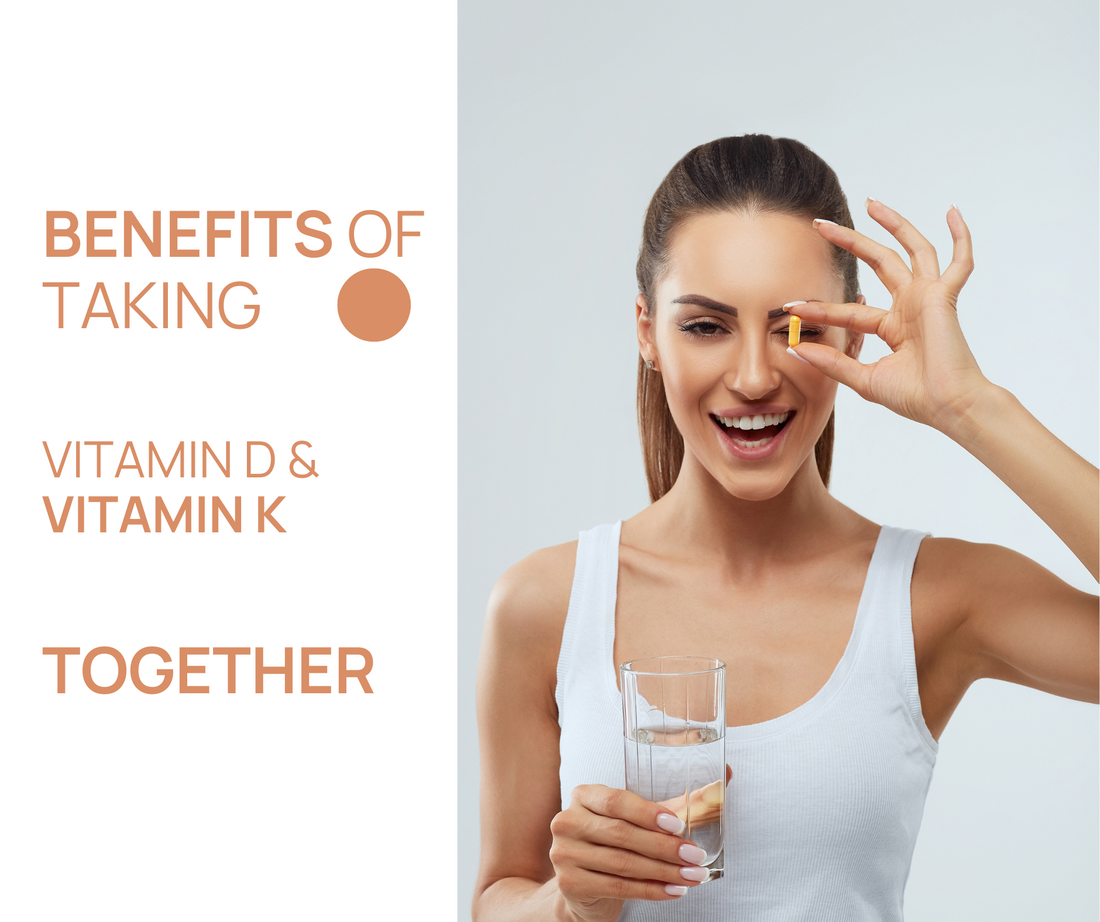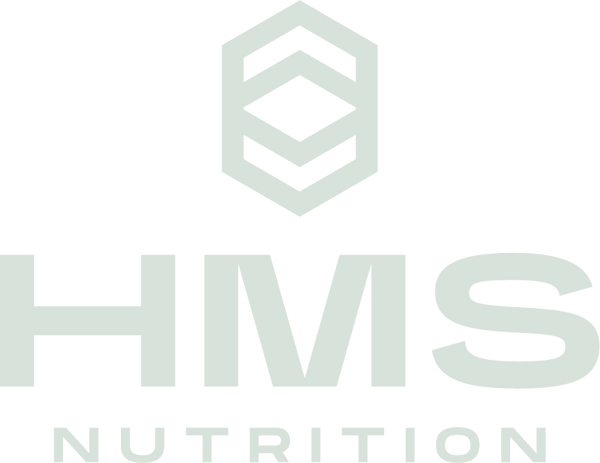
Benefits of Taking Vitamin D and Vitamin K Together
In our quest for better health, vitamins play a crucial role. Two vitamins that often fly under the radar are vitamins D and K. While you might be familiar with them individually, did you know that taking them together can significantly enhance their benefits? In this article, we'll explore the powerful synergy between vitamin D and vitamin K and how they can improve your health, particularly if you're aged 35-55.
Understanding Vitamin D
What is Vitamin D?
Vitamin D, often called the "sunshine vitamin," is essential for many bodily functions. It's unique because our bodies can produce it when our skin is exposed to sunlight. However, many people don't get enough sunlight, especially during the winter months, making dietary sources and supplements crucial.
Sources of Vitamin D
Natural sources of vitamin D include fatty fish like salmon and mackerel, egg yolks, and fortified foods such as milk and cereals. But let's face it, getting enough from food alone can be challenging. That's where supplements prove invaluable.
Functions and Benefits of Vitamin D
Vitamin D is vital for calcium absorption, which is crucial for maintaining healthy bones. It also plays a significant role in immune function, helping your body fend off illnesses. Additionally, it has been linked to improved mood and mental health, making it an all-around essential nutrient.
Understanding Vitamin K
What is Vitamin K?
Vitamin K might not be as well-known as vitamin D, but it's equally important. There are two main types: K1 (phylloquinone), found in leafy greens, and K2 (menaquinone), found in fermented foods and animal products.
Sources of Vitamin K
You can get vitamin K1 from foods like kale, spinach, and broccoli. Vitamin K2 is found in fermented foods like natto, a Japanese dish made from fermented soybeans, and in meats and cheeses. Including a variety of these foods in your diet can help ensure you're getting enough of this vital nutrient.
Functions and Benefits of Vitamin K
Vitamin K is best known for its role in blood clotting, which prevents excessive bleeding when you're injured. But its benefits don't stop there. Vitamin K is crucial for bone health and cardiovascular health, helping to direct calcium to where it belongs (in your bones) and away from where it doesn't (in your arteries).
The Synergy of Vitamin D and K
How They Work Together
When vitamins D and K are taken together, they work synergistically to enhance each other's benefits. Vitamin D helps your body absorb calcium, while vitamin K ensures that calcium is properly utilized in your bones and not deposited in your arteries.
Enhanced Bone Health
As we age, maintaining bone density becomes increasingly important. The combination of vitamins D and K is particularly effective in strengthening bones and preventing conditions like osteoporosis. Vitamin D increases calcium absorption, and vitamin K helps incorporate that calcium into your bone matrix, making your bones stronger and healthier.
Cardiovascular Benefits
Cardiovascular health is a major concern, especially as we get older. Vitamins D and K together can help reduce the risk of arterial calcification, a condition where calcium deposits in the arteries, leading to hardening and potential heart problems. Vitamin K2, in particular, is effective in preventing this calcification, ensuring that calcium is used where it's needed – in your bones.
Specific Benefits for People Aged 35-55
Bone Health
In your midlife years, maintaining bone density is crucial. The combination of vitamins D and K can significantly help in preventing bone loss and promoting bone strength. This is especially important for women who are at a higher risk of osteoporosis after menopause.
Heart Health
Heart health becomes more critical as we age, with increased risks of cardiovascular diseases. By preventing arterial calcification, vitamins D and K help maintain flexible, healthy arteries, reducing the risk of heart disease and promoting overall cardiovascular health.
Immune Function
Our immune system naturally weakens with age, making us more susceptible to infections and illnesses. Vitamin D is known for its immune-boosting properties, and when combined with vitamin K, it provides a robust defense mechanism, helping you stay healthier year-round.
Practical Tips for Incorporating Vitamins D and K
Dietary Sources
Incorporating foods rich in vitamins D and K into your daily diet is a great way to ensure you're getting these essential nutrients. Some vitamin D-rich foods include:
- Fatty fish (salmon, mackerel)
- Egg yolks
- Fortified milk and cereals
For Vitamin K, focus on:
- Leafy greens (kale, spinach, broccoli)
- Fermented foods (natto, sauerkraut)
- Animal products (meat, cheese)
Supplementation
If you're not getting enough vitamin D and K from your diet, supplements can be a convenient option. Here are some tips for choosing and taking supplements:
Choosing the Right Supplement: Look for high-quality supplements that provide both vitamin D3 (the most effective form of vitamin D) and vitamin K2.
Timing: Taking your vitamin D and K supplements with a meal that contains fat can enhance absorption since both are fat-soluble vitamins.
Lifestyle Tips
A balanced diet and regular exercise are essential components of a healthy lifestyle. Here are some additional tips to maximize the benefits of vitamins D and K:
Get Regular Sun Exposure: Aim for at least 15-30 minutes of sun exposure several times a week, especially in the morning or late afternoon.
Stay Active: Weight-bearing exercises like walking, jogging, and resistance training can help improve bone density.
Monitor Your Health: Regular check-ups with your healthcare provider can help you keep track of your vitamin levels and overall health.
Potential Risks and Considerations
Overconsumption
While vitamins D and K are crucial for health, taking too much can lead to toxicity. Symptoms of vitamin D toxicity include nausea, vomiting, weakness, and serious complications like kidney damage. Vitamin K toxicity is rare but can interfere with blood clotting.
Interactions with Medications
Vitamins D and K can interact with certain medications. For example, vitamin K can reduce the effectiveness of blood thinners like warfarin. Always consult your healthcare provider before starting any new supplement regimen, especially if you're on medication.
Conclusion
Vitamins D and K are a powerful duo that can significantly enhance your health, particularly as you enter your midlife years. From strengthening bones to supporting heart health and boosting your immune system, these vitamins offer a range of benefits that are hard to ignore. By incorporating foods rich in these vitamins into your diet or considering supplements, you can take proactive steps towards better health and well-being.
References
Ready to boost your health with vitamins D and K? Start by incorporating more vitamin-rich foods into your diet or talk to your healthcare provider about supplementation. Have any questions or tips on how you’ve benefited from vitamins D and K? Share your thoughts and experiences in the comments below. Let’s support each other on this journey to better health!
Links to Purchase
HMS Nutrition: Calcium, Magnesium, Vitamins D3 and K2 - 120 ct. – HMS Nutrition
